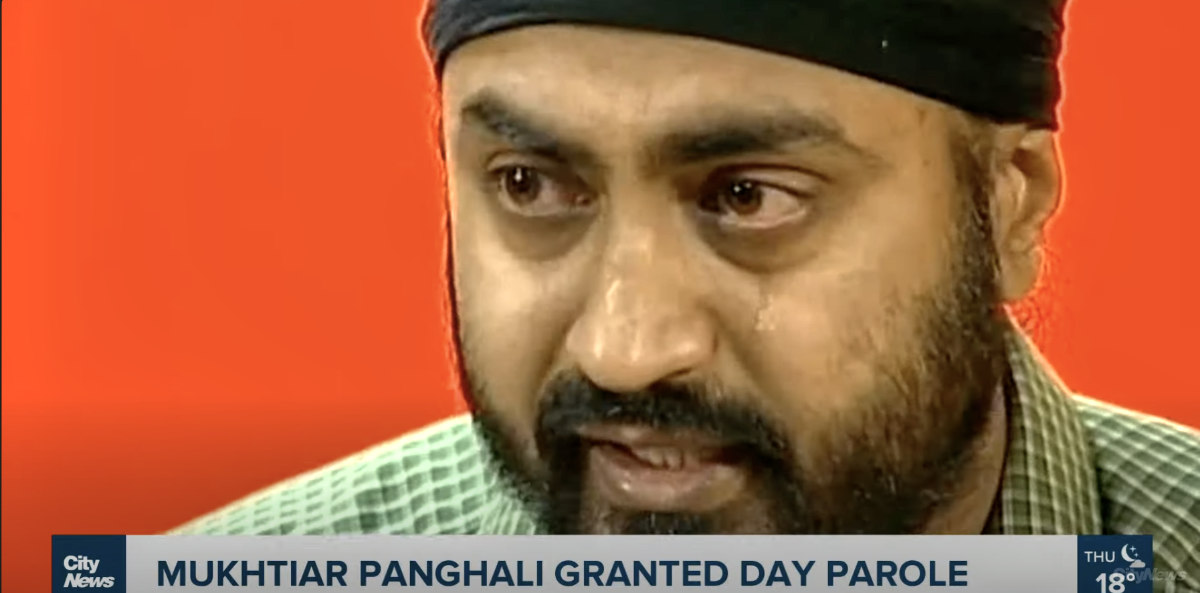A Canadian man who strangled his pregnant wife, and then burned her body to hide the evidence, has been granted full parole — which means he will be able to go completely free, less than 20 years after murdering two people.
Seventeen years ago, Mukhtiar Panghali murdered his wife, Manjit Panghali. She was just 31 years old, and four months pregnant with their child. They also had a three-year-old daughter at the time of the murder. Evidence showed that Panghali strangled his wife after she returned home from a prenatal yoga class.
Allegedly, the violence was in response to her disagreement with him over moving his parents into their home. “You took this as an insult to your family and your authority,” court documents said. “File information informs that the marriage did include allegations of violence and abuse.”
Strangulation is a common method of homicide among domestic abusers, and as it takes several minutes for the victim to die, is an intentional form of murder. Strangulation takes time, intention, and physical effort. After the murder, Panghali took pains to conceal his crime. He staged his wife’s car in one location, burned her body on a remote beach in another, and then waited as long as he could to file a missing persons report.
He was arrested in 2007 and charged with second-degree murder; in 2011, he was sentenced to life in prison without the possibility of parole for 15 years. But earlier this year, Panghali was granted day parole, years shy of the 15 years required by his sentence; he was given four years credit for time-served while awaiting his trial.
READ: Florida man who murdered pregnant niece gets three life sentences: ‘That baby was a real person’
Oddly, in the parole board’s decision to grant him day parole, they acknowledged how horrific his crime was:
“While there is no Victim Impact Statement on file, your case management team (CMT) indicate that your actions devastated the lives of the victim’s family including your own daughter, tore your family apart, and shook an entire community. You cut not only your wife’s life short, but also your unborn child’s life. There is clear harm experienced by the victim’s family who also include your own daughter and the grief and loss they will continuously endure.”
And just months later, Panghali was granted full parole, even as more concerning information continued to surface. “Reports indicate that your marriage involved allegations of violence and abuse,” read the board’s letter to Panghali. “Your child asked for space in 2019, but you hope to reconnect in the future.”
They further noted that there were several concerning factors regarding their decision, including fantasizing about his wife’s murder for several months before carrying it out. “Serious harm criteria was met, and the victim’s family and friends were likely impacted permanently, along with peripheral victims such as witnesses and first responders,” they wrote. “The defilement of the victim’s body indicates a significant callousness to your actions.”
The board also acknowledged that Panghali has previously minimized and avoided accountability for his crimes, but said he now shows remorse. “You voiced regret for your actions, appeared future-oriented and outlined your short- and long-term goals for your future,” the board wrote. “Your goal is to be a good father to your daughter, regardless if she resumes contact with you or not.”
Evidently, this is enough for the parole board to believe that Panghali does not pose an “undue risk” to society, and he has been allowed to be fully paroled. Part of his parole conditions include not entering into any intimate or romantic relationships, as those would pose a high risk. He is also not allowed to contact his daughter, who was raised by her maternal aunt. His wife’s family filed a civil suit against Panghali, and it was settled for $300,000 in 2014.








